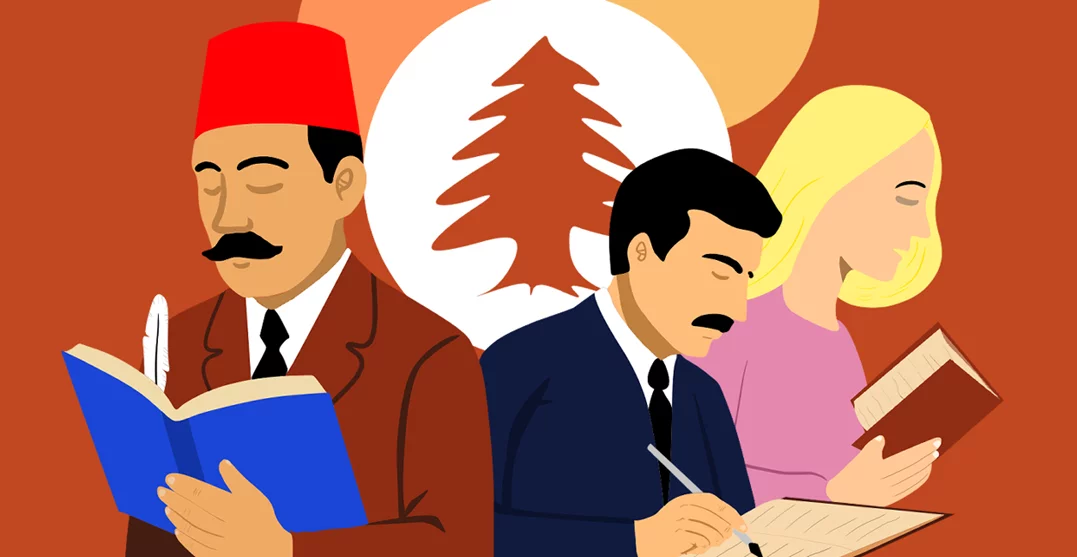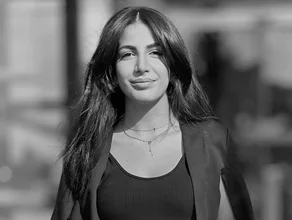From Gibran to Haddad, the writers who turned Lebanon into a global literary powerhouse.
Voices of the cedars

If words could wield power, Lebanese writers have proved they can move nations. For over a century, Lebanon’s poets, novelists, and intellectuals have done more than enchant readers, they have shaped political thought, challenged authority, and contributed to the evolution of national identity.
From mystical reflections to bold modernist experiments, Lebanese literature has been inseparable from the country’s social and political life, resonating from Beirut’s cafés to the halls of Harvard, Paris, and Cairo. Through their pens, writers have questioned regimes, bridged communities, and influenced debates on governance, social reform, and civic identity.
Literature as civic awakening
From the late 19th century, writers transformed cafés, salons, and diaspora networks into arenas where literature, civic debate, and political consciousness intertwined.
The intellectual climate of the Arab Nahda, or cultural renaissance, provided the fertile ground for this transformation. As ideas of modernity, reform, and self-determination spread across the Arab world, Lebanese writers emerged at the forefront, blending local traditions with global currents. The Nahda encouraged engagement with political and social issues, advocating educational reform, gender equality, and civic participation, and Lebanese intellectuals quickly became leading voices in this movement.
In the early 20th century, Lebanese writers abroad pioneered new forms of literary and political engagement. The Pen League, founded in New York in 1915, became a hub for Lebanese and Syrian intellectuals determined to modernize Arabic literature and awaken political thought. Gibran Khalil Gibran, the movement’s most iconic figure, fused spiritual insight with universal humanist ideals in The Prophet (a masterpiece translated into 112 languages), offering readers not only moral guidance but a vision of justice, dignity, and leadership that transcended borders.
Mikhail Naimy infused mysticism with philosophical reflection, presenting literature as a way to explore the human condition while encouraging ethical and political introspection. Ameen Rihani’s essays and novels bridged East and West, advocating Arab unity, national consciousness, and civic responsibility, influencing both local and diaspora communities. Abd al-Masih Haddad and Elia Abu Madi contributed to this intellectual ferment, emphasizing modernity, exile, and cultural critique.
Back in Lebanon, figures like May Ziadeh turned literary salons in Beirut and Cairo into arenas for social and political debate. Her gatherings brought together writers and thinkers to discuss education, women’s rights, and national identity, illustrating how literature could be inseparable from civic engagement.
Locally, poets and intellectuals such as Said Akl, Charles Corm, Boutros al-Boustani, Maroun Abboud, and Khalil Mutran explored identity, social reform, and national cohesion, producing works that reflected Lebanon’s diverse communities and complex political landscape. Their collective efforts forged a tradition in which literature was not only a reflection of society but a tool for shaping it.
Following independence in 1943, Lebanese literature became even more entwined with politics and social consciousness. Beirut emerged as the “Paris of the Middle East,” a hub of publishing houses, universities, and cafés, yet this golden age existed amid sectarian tensions and regional conflicts. Writers such as Youssef al-Khal, founder of Shi’r magazine, introduced free verse and modernist forms that challenged both aesthetic conventions and social hierarchies. His poetry offered subtle yet incisive commentary on the nation’s political fragility and the need for civic renewal. Ounsi el-Hajj carried this modernist experimentation further, using existential themes to reflect the human cost of Lebanon’s political upheavals, while Chawki Bazih combined lyrical artistry with social critique, exploring exile, memory, and modern life amid political uncertainty.
The Francophone literary scene also became a vehicle for political reflection. Nadia Tueni’s poetry, elegant yet imbued with grief, confronted the scars of civil unrest, bridging personal loss with collective trauma. Emily Nasrallah chronicled displacement, gender inequality, and the human consequences of war, using narrative to question authority and advocate for social awareness. Novelists such as Elias Khoury captured the complexities of the civil war and national memory, demonstrating how literature could mediate public understanding of political crises while shaping debates on identity and reconciliation.
Modern voices, global influence
Entering the 21st century, Lebanese writers have extended this tradition to the global stage, confronting contemporary political and social challenges. Amin Maalouf, with works like Les Rochers de Tanios, revisits Lebanon’s historical layers and struggles for coexistence, offering insights into national identity and the political ramifications of memory and exile. Hoda Barakat’s novels confront civil war, displacement, and human suffering, highlighting the consequences of political failure while fostering empathy and dialogue.
Joumana Haddad, Rabih Alameddine, Charif Majdalani, and Abdo Wazen explore migration, activism, identity, social reform and political exile, while visual storytellers such as Zeina Abi Rached document the urban and wartime realities of Lebanon for global audiences.
From the mystical reflections of Gibran to the historically anchored narratives of Maalouf, Lebanese literature has consistently combined artistic innovation with political and social engagement. Writers have questioned authority, reflected on civic responsibility, and offered visions of national unity and resilience.
They remind us that a small nation can cast a giant cultural shadow, that language is a weapon and a sanctuary, that literature can challenge regimes, preserve memory, and inspire generations.
Lebanese writers speak a universal language: the language of resilience, imagination, and courage.
As long as their pens move, the world will keep listening.



